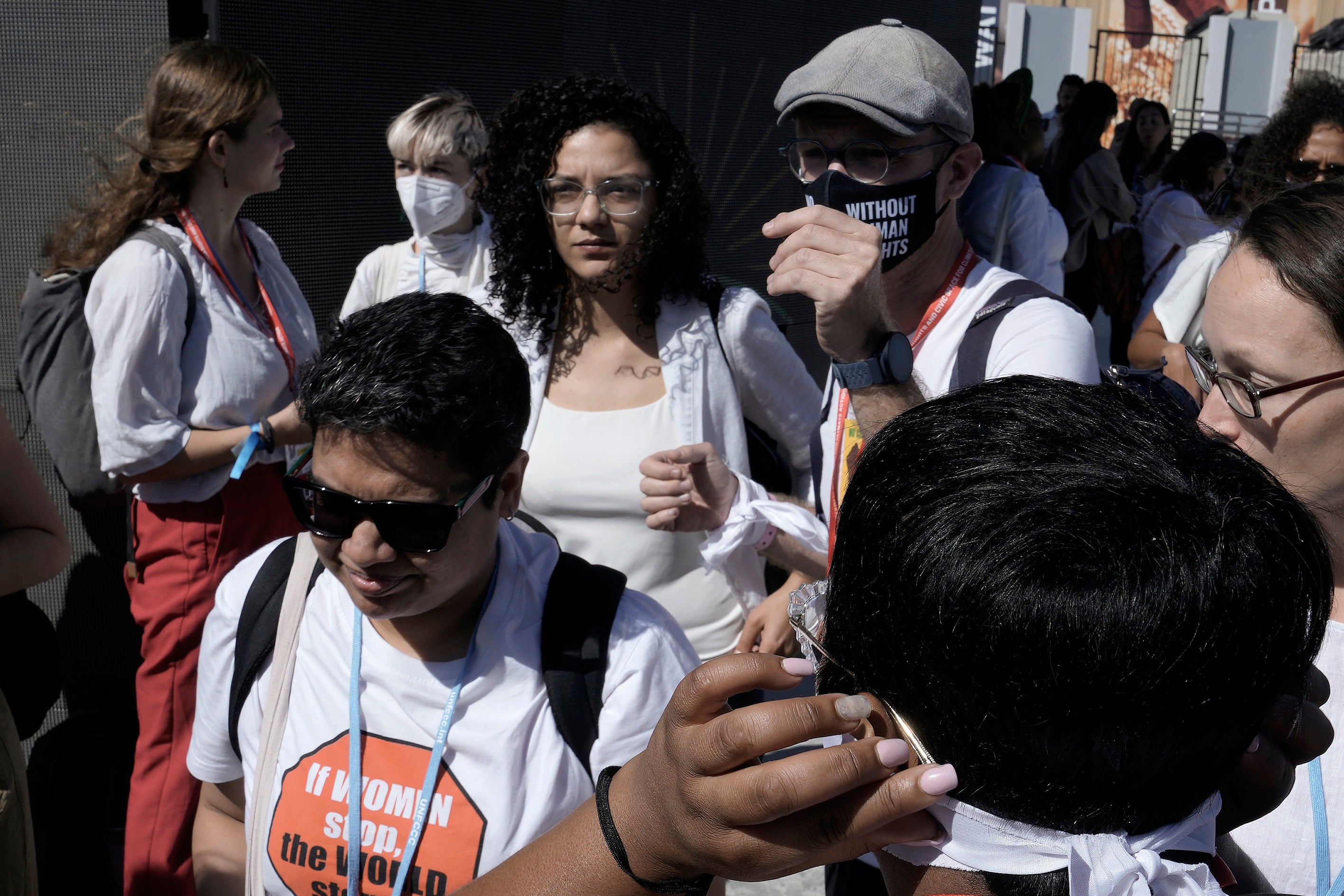Jailed Egyptian hunger striker is hospitalized, family says
Family say Egyptian prison authorities have intervened medically with jailed pro-democracy activist Alaa Abdel-Fattah, who this week escalated a food and hunger strike demanding his release

Your support helps us to tell the story
From reproductive rights to climate change to Big Tech, The Independent is on the ground when the story is developing. Whether it's investigating the financials of Elon Musk's pro-Trump PAC or producing our latest documentary, 'The A Word', which shines a light on the American women fighting for reproductive rights, we know how important it is to parse out the facts from the messaging.
At such a critical moment in US history, we need reporters on the ground. Your donation allows us to keep sending journalists to speak to both sides of the story.
The Independent is trusted by Americans across the entire political spectrum. And unlike many other quality news outlets, we choose not to lock Americans out of our reporting and analysis with paywalls. We believe quality journalism should be available to everyone, paid for by those who can afford it.
Your support makes all the difference.Egyptian prison authorities have intervened medically with jailed pro-democracy activist Alaa Abdel-Fattah, who this week escalated a food and water strike demanding his release, coinciding with Egypt’s hosting of the U.N. climate summit, his mother said.
The nature of the intervention was not known, but the family has expressed fears prison officials would force-feed Abdel-Fattah, which they said would amount to torture. Abdel-Fattah said in an earlier letter that he was prepared to die in prison if not freed.
Abdel-Fattah's mother, Leila Soueif, said she spoke to prison authorities by phone and asked them if her son was undergoing any medical procedure and they said he was. She asked “if it was by force, and they said no" and told her, “Alaa is good,” she told The Associated Press.
Soueif called for him to be transferred to a civilian hospital rather than a prison facility. “I need proof for this. I don’t trust them,” she said. Soueif has been waiting outside the prison every day this week, asking for proof of life for her son.
Abdel-Fattah, who has been in prison for most of the past decade, is serving a five-year sentence on charges of disseminating false news for retweeting a report in 2019 that another prisoner died in custody.
He had been on a partial hunger strike of 100 calories a day for the past six months. He stopped all calorie intake and began refusing water on Sunday, the first day of the world climate summit held at the Egyptian Red Sea resort town of Sharm el-Sheikh.
Egypt’s hosting of the event has drawn intensified international attention to heavy suppression of speech and political activity. Since 2013, President Abdel Fattah el-Sissi’s government has cracked down on dissidents and critics.
World leaders and activists have repeatedly called for Egyptian authorities to release the activist.
Abdel-Fattah rose to fame during the 2011 pro-democracy uprisings that swept through the Middle East, toppling Egypt’s long-time President Hosni Mubarak. His long imprisonment since 2011 became a symbol of Egypt’s sliding back to autocratic rule under el-Sissi.